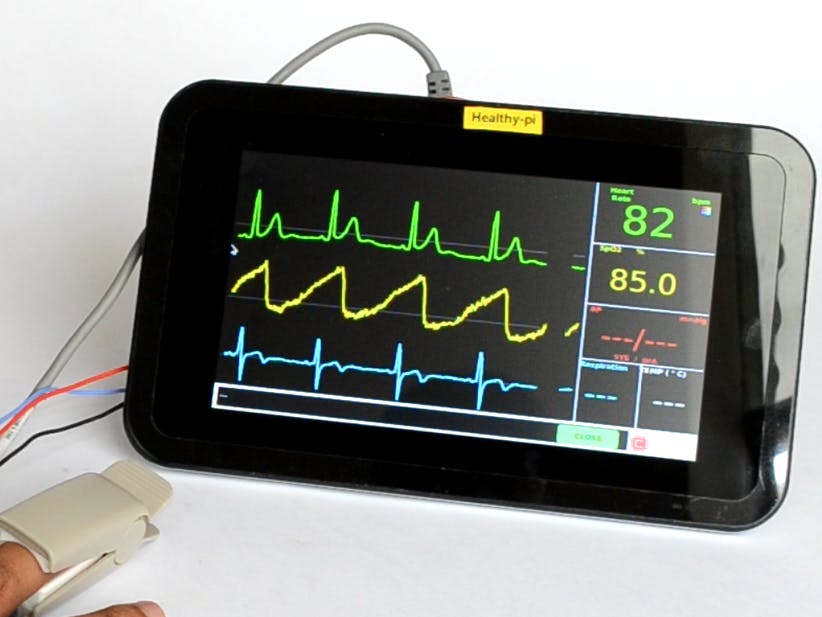Top 15 Raspberry Pi Medical and Healthcare IoT Projects With Arduino (EMR, PACS, DICOM, & Patient Monitoring)
Raspberry Pi is a low-cost functional tiny computer that goes under a trending SBC "Single Board Computer". Consider it a complete computer that you get at $35.
Note: This article is an Evergreen article. It will receive continues update about the listed applications. You can save it and return to it as a updated resource.
Raspberry Pi is a low-cost functional tiny computer that goes under a trending SBC "Single Board Computer". Consider it a complete computer that you get at $35. While the primary goal for it was for educational purposes, but it becomes the developers/ hackers favorite SBC not just because it was the first but because it is widely supported and packed from developers all over the world.
Raspberry Pi is used in many enterprise-grade projects in many sectors like Home automation, as some frameworks are dedicated to bringing Raspberry Pi to the automation industry like Home Assistant. Raspberry Pi is the core module for Mycroft: The AI-powered open source voice assistant.
If you are looking for Arduino, We have compiled a list of top 20 Arduino medical projects.
Though there are many SBC "Single Board Computers" out there, Raspberry Pi is still the choice for many developers because of the support and the price. In this article , we will cover Raspberry Pi based Healthcare/ Medical projects only, however, there are other amazing projects which are powered by other SBC as Latte Panda, Orange Pi, and Asus Tinker Board.
I have different versions of Raspberry Pi including the Nano version, some Orange Pi boards, I have used them in some projects including BlueTooth indoor monitoring for factory automation, Raspberry Pi 3 Model B has proven the best board in comparison to some others i have tested, Mainly because of the support, and developers community as its easy to get support. In terms of price, Raspberry Pi is the best in the value of what it provides.
Raspberry Pi Medical and Healthcare IoT Projects
EMR/ EHR and HIS
1- GNU Health embedded: HIS/ EMR on Raspberry Pi

GNU Health is an open source electronic medical record (EMR) and hospital information system (HIS), It provides a complete integrated system to run hospitals as it includes patient medical records management, billing, and finance management, laboratory management, stock management, and more features.
GNU Health embedded is a GNU Health Raspberry Pi server which has its own database allowing it to store the records locally without the need of a network. GNU Health embedded is using OpenSUSE Linux to power the server.
2- OpenEMR on Raspberry Pi
OpenEMR is an open source electronic medical record (EMR), It is a self-hosted cloud-based EMR solution. OpenEMR was developed using PHP and MySQL, It provides a fully functional secure EMR solution with many integration options.
OpenEMR was installed successfully on Raspberry Pi, Though that was years ago, It has proven to be a valid choice for clinics to use it.
Currently, OpenEMR does not have embedded/ dedicated Raspberry Pi system image as GNU Health has, but we may see that in the near future.
PACS/ DICOM Raspberry Pi Projects
3- OrthancPi: Mini DICOM/ PACS server
Orthanc is an open source developer-friendly DICOM server, We have reviewed it here and it was on top of our list of open source DICOM/ PACS servers.
OrthancPi is a Raspberry Pi-powered mini DICOM/ PACS server, The developers provide a full functional Orthanc server packed within Raspberry Pi Linux distro, They also provided detailed instructions how to install, configure and run OrthancPi.
4- Pumpkin PACS/ Pumpkin Pi
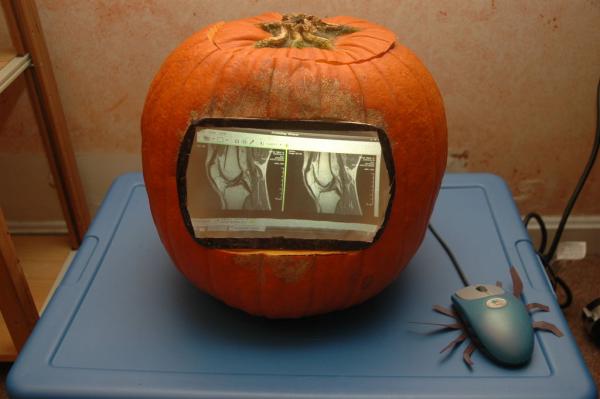
Pumpkin PACS or Pumpkin Pi is a prototype project that converts Raspberry Pi to a small PACS/ DICOM workstation, It uses Aeskulap open source DICOM viewer to display the medical images. The developer has provided a full detailed instruction about the project.
5- IRM Sandwich: Mini PACS server
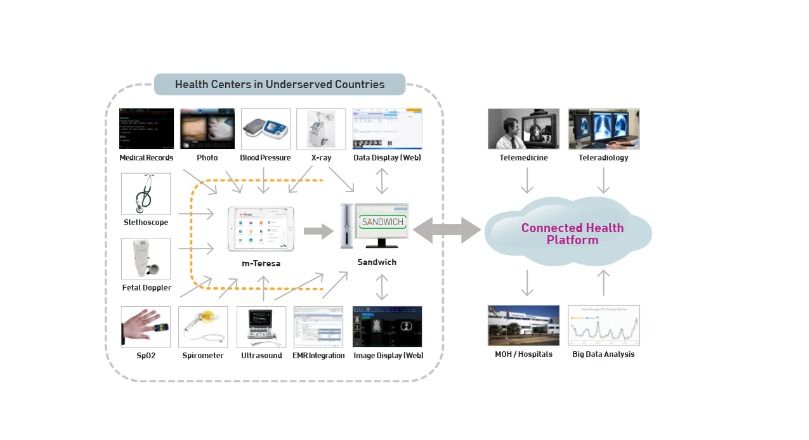
IRM Sandwich is a commercial PACS server with “Zero Foot Print” DICOM Viewer that connected to the IRM Health Engine which is the product of the same company. IRM Sandwich was designed to be very lightweight, so it can run smoothly with Raspberry Pi and some other SBC as well as Mini PCs.
LIMS: Laboratory Information System on Raspberry Pi
Though there are many open source laboratory management systems (LIMS), It seems that the developers didn't consider creating Raspberry Pi images for their product, even though, PloneCMS which is python powered framework and the engine of 3 popular open source LIMS has a successful Raspberry Pi port there is not enough information about Plone powered LIMS taking the same path.
6- GNU LIMS: LIMS on Raspberry Pi
GNU LIMS is an open-source laboratory information management system which integrates with GNU Health. GNU LIMS also works within Raspberry Pi which makes it the only open source LIMS that is boxed and ready with Raspberry Pi.
Others
7- MySignals e-Health Sensor Platform for Raspberry Pi/ Arduino
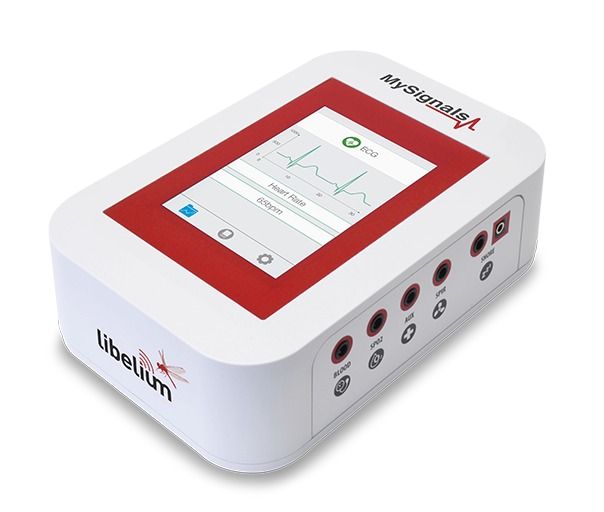
MySignals is a platform for developers to create IoT medical monitoring and notification applications, It was once called "eHealth Sensor Platform" as it provides developer-friendly medical sensors compatible with Raspberry Pi/ Arduino.
8- HealthyPi
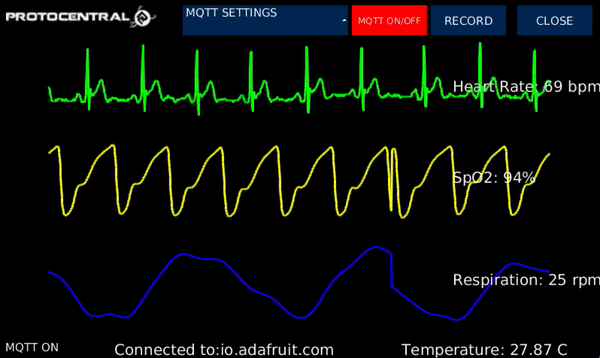
HealthyPi An open-source, multi-parameter, full-fledged human body vital sign monitoring HAT for Raspberry Pi as well as standalone use. It aims for developers with a passion to create low-cost vital sign monitors.
HealthPi got $25,128 fund at crowdsupply.com on its first campaign back in 2017.
9- Raspberry Pi Patient Monitor
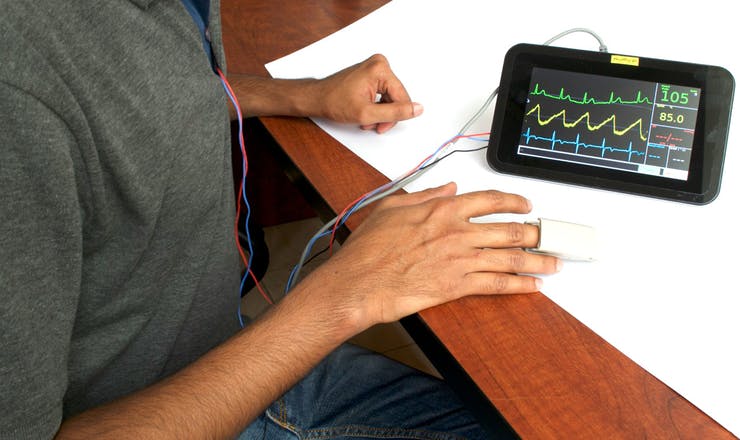
This project uses ProtoCentral HealthyPi's sensors with Raspberry Pi to create a low-cost effective patient monitoring system. With the Raspberry Pi compatible monitor it monitors ECG, Heart Rate, SPO2, Respiration, Temperature, and Blood Pressure. The project's engineers released a detailed instruction of the project setup.
10- Smart Health Kit
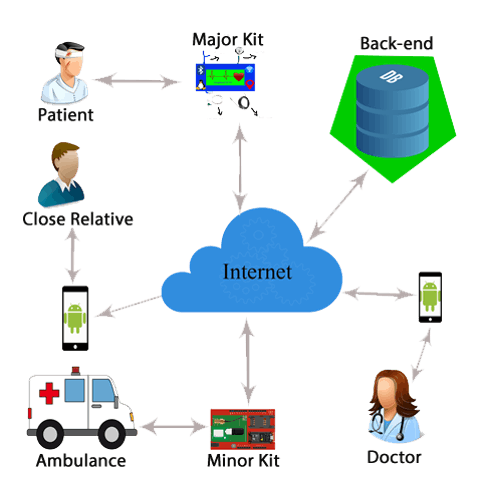
Smart Health Kit is aiming to create a highly effective notification and alerting system using Raspberry Pi. It provides real-time monitoring and instant notification system to ensure an effective timely response.
11- PatientCare-wearable: Patient monitor
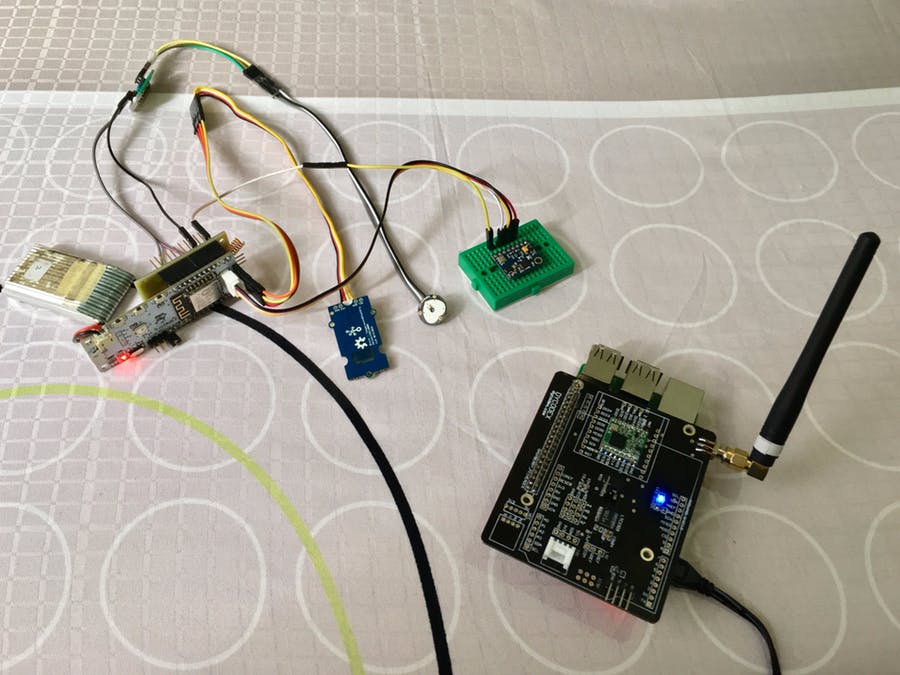
PatientCare is a prototype for real-time patient monitoring implementation using Raspberry Pi and a set of medical sensors to send real-time monitoring data to Samsung IoT cloud platform.
12 -Nurse Presence Detection
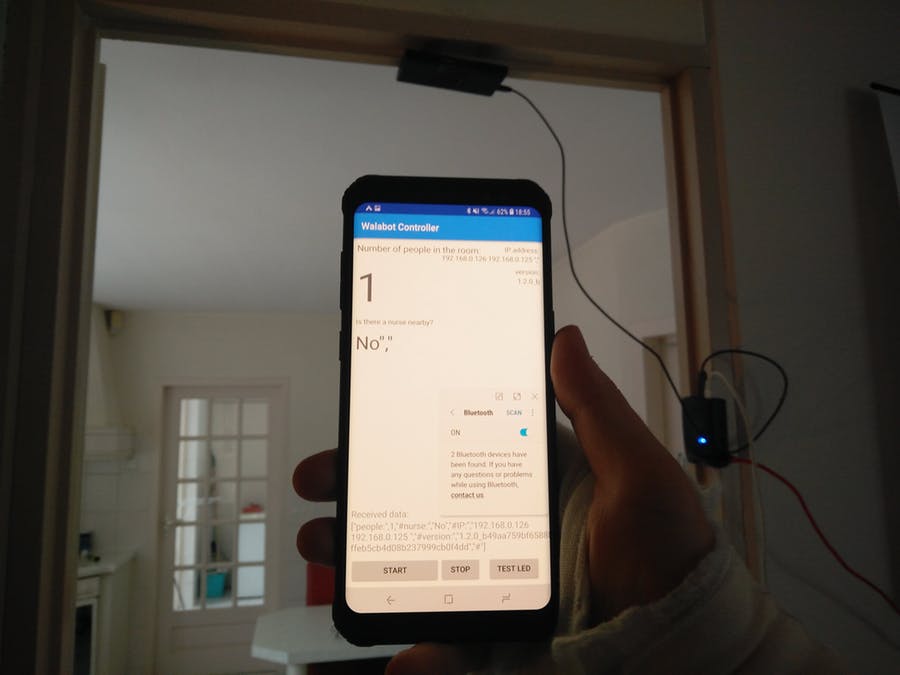
Nurse Presence Detection uses Raspberry Pi with Walabat commercial device and Android device (Phone or tablet) to send a notification if there is someone enters the patient's room. It also detects if that person is the assigned nurse or not. Well, it can come handy for security for certain rooms, but it's not that practical on large scale because of Walabot devise pricing.
13- Raspberry Pi Electrocardiogram
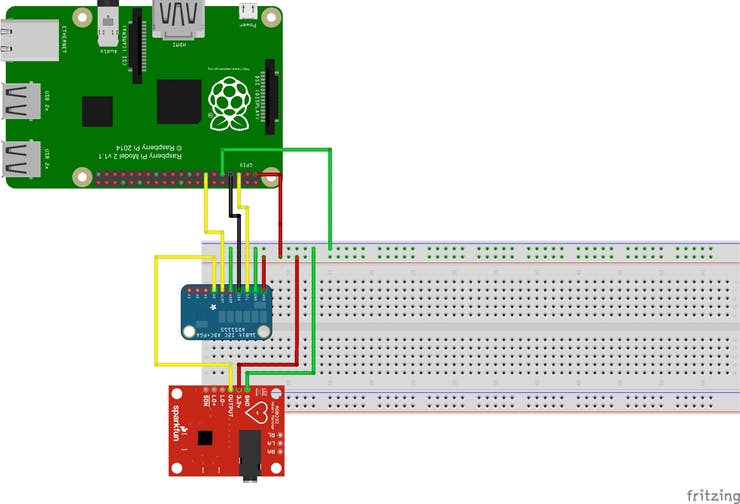
This prototype is a successful implementation of Raspberry Pi as ECG device, even though it comes with a warning" .This project is not a medical device and is not intended to diagnose or treat any conditions.", It provides detailed instructions on how to create a functional Electrocardiogram with Raspberry Pi using Windows IOT and Azure.
14- Heart Rate Pulses
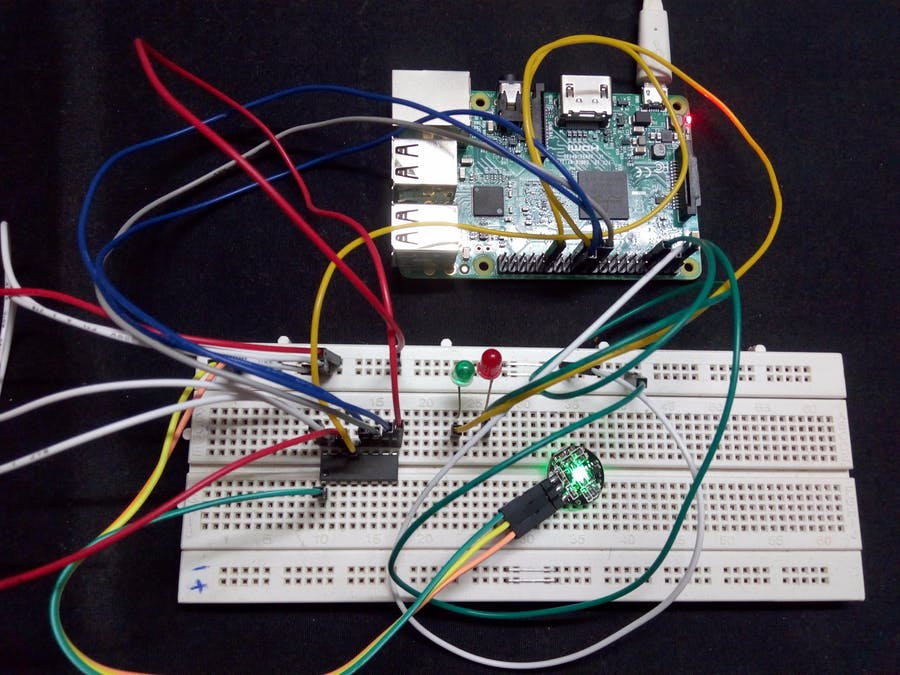
Heart Rate Pulses monitor is a prototype with a comprehensive tutorial about how to use Heart Rate Pulse Sensor with Raspberry Pi, but it's unlike other projects it uses Windows 10 IoT Core.
15- Emergency Button for Elderly and Patients with Serious Illnesses
Unlike other projects in this list, this project uses Raspberry Pi Zero Wireless model to create an emergency notification button for patients, especially patients with serious illness or elderly. It uses Pushbullet.com which is a notification system to send the notification to the care team or doctors.
Related Article
- Top 10+ Free & Open source DICOM Viewers for Mac OSX
- 10+ Open source Free DICOM viewers (Linux, Mac OSX and Windows)
- Top 15 FREE DICOM Viewers for doctors: Windows, Linux and Mac OSX
- 20 Free & open source DICOM viewers for Windows.

